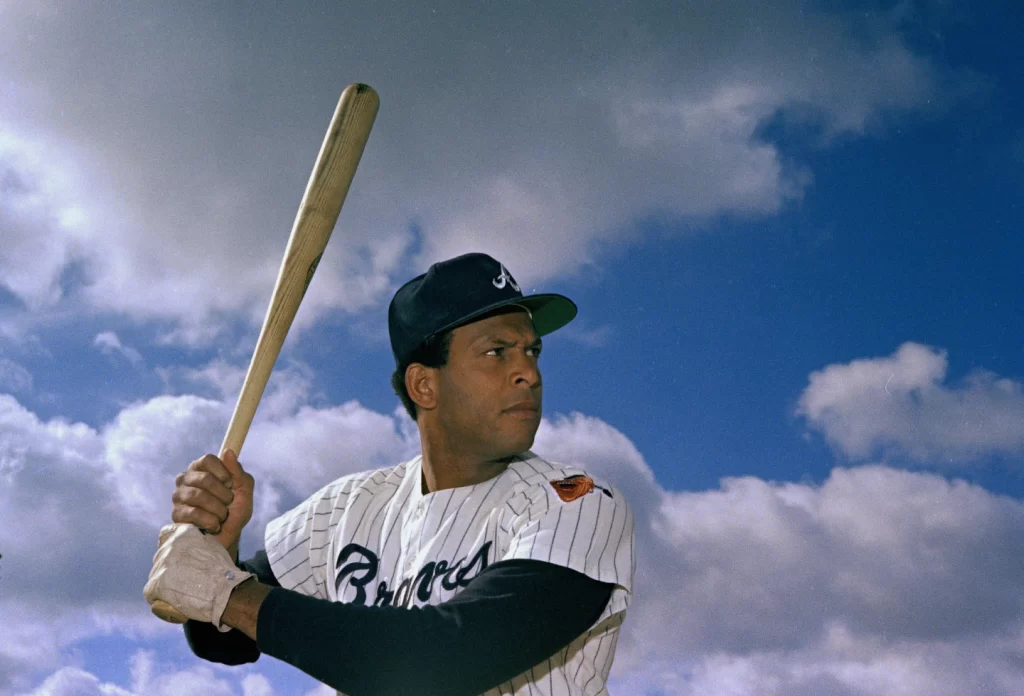
Orlando Cepeda, the Hall of Fame first baseman known as “Baby Bull,” has passed away at the age of 86. The San Francisco Giants and his family confirmed his death on Friday night. During a game against the Los Angeles Dodgers at Oracle Park, a moment of silence was observed, and his photo was displayed on the scoreboard.
“Our beloved Orlando passed away peacefully at home this evening, listening to his favorite music and surrounded by his loved ones,” his wife, Nydia, stated through the team. “We take comfort that he is at peace.”
Cepeda was a frequent presence at Giants home games until health issues arose in 2017. In February 2018, he was hospitalized in the Bay Area after a cardiac event.
As one of the pioneering Puerto Rican stars in Major League Baseball, Cepeda faced knee issues but became Boston’s first designated hitter. He credited this role with helping him enter the Hall of Fame in 1999, as selected by the Veterans Committee.
“Orlando Cepeda’s unabashed love for the game of baseball sparkled during his extraordinary playing career, and later as one of the game’s enduring ambassadors,” Hall of Fame Chairman Jane Forbes Clark remarked. “We will miss his wonderful smile at Hall of Fame Weekend in Cooperstown, where his spirit will shine forever, and we extend our deepest sympathies to the Cepeda family.”
Cepeda joined the Red Sox as their first designated hitter in December 1972. “Boston called and asked me if I was interested in being the DH, and I said yes,” Cepeda recalled in a 2013 interview with The Associated Press. “The DH got me to the Hall of Fame. The rule got me to the Hall of Fame.”
Uncertain about the designated hitter role at first, Cepeda adapted well, playing 142 games that season, which was the penultimate year of his 17-year major league career. The Oakland A’s had released him just months after acquiring him from Atlanta in June 1972.
On May 8, 2013, Cepeda was honored at Fenway Park for his contributions as a designated hitter. Despite an invitation for the first home series of the season, he was committed to honoring his former Giants franchise, the reigning World Series champions at that time.
“It means a lot,” Cepeda said then. “Amazing. When you think everything’s finished, it’s only the beginning.”
He recalled a telegram from then-A’s owner Charlie Finley, giving him 24 hours to respond or face release. Cepeda missed the deadline and was released in December 1972. He had only played three games for Oakland after being acquired for pitcher Denny McLain. A left knee injury placed him on the disabled list, and he underwent a total of ten knee operations, sidelining him for several seasons.
Cepeda transitioned from a first baseman and outfielder to the designated hitter role under the new American League rule. “They were talking about only doing it for three years,” he said. “And people still don’t like the idea of the DH. They said it wouldn’t last.”
The designated hitter rule provided opportunities for players like Cepeda, who could still contribute offensively but struggled defensively due to injuries.
In 1973, Cepeda hit .289 with 20 home runs and 86 RBIs, starting strong with a .333 average and five homers in April. He drove in 23 runs in August and earned the DH of the Year honors. On August 8, at Kansas City, he hit four doubles in one game.
“That was one of the best years,” Cepeda recalled, “because I was playing on one leg and I hit .289. And I hit four doubles in one game. Both my knees were hurting, and I was designated hitter of the year.”
Cepeda surpassed Baltimore’s Tommy Davis and Minnesota’s Tony Oliva for the top DH honors that year.
Cepeda faced cultural challenges early in his career, arriving in the U.S. minor leagues in the mid-1950s with little English proficiency. He was among the first wave of Spanish-speaking players adapting to a new environment while supporting their families back home.
In a 2014 interview with the AP, Cepeda recalled being told by a manager to return to Puerto Rico to learn English before continuing his career in the U.S. “Coming here my first year, everything was a novelty to me, a surprise,” he said. His father passed away shortly after he arrived in Virginia for his first professional game.
After a stint back in Puerto Rico, financial needs brought Cepeda back to the U.S. to continue his career. He noted the improved English skills of Latin American players today, thanks to MLB academies and language classes during spring training and minor leagues.
Cepeda also faced legal troubles. In May 2007, he was arrested for speeding, and officers found drugs in his car. He was convicted in 1976 in San Juan, Puerto Rico, for smuggling marijuana and served five years in prison, which likely delayed his Hall of Fame induction by the Baseball Writers’ Association of America.
Cepeda’s major league career spanned 17 seasons, starting with the Giants. He also played for St. Louis, Atlanta, Oakland, Boston, and Kansas City. He was traded by the Cardinals to the Braves for Joe Torre in the spring of 1969.
A seven-time All-Star, Cepeda played in three World Series. He was the 1958 NL Rookie of the Year with the Giants and the 1967 NL MVP with the Cardinals. In 1961, he led the NL with 46 home runs and 142 RBIs. Cepeda finished his career with a .297 batting average and 379 home runs.
Reflecting on his 1973 season, Cepeda appreciated his achievements and his role in the sport’s evolution. “I just did it,” he said of learning the DH role. “Every day, I say to myself, how lucky I am to be born with the skills to play ball.”
